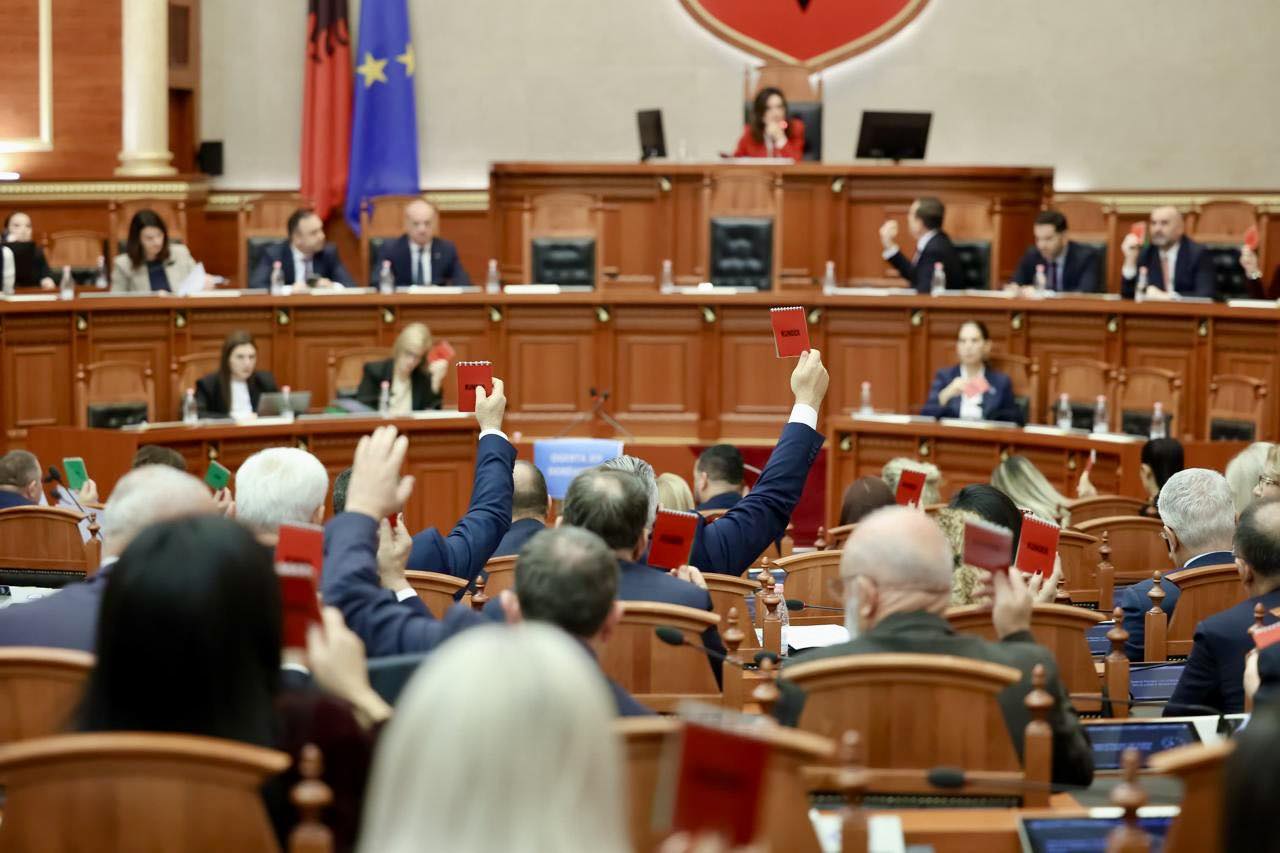Editorial note: Albania’s parliamentary sessions have become a weekly display of dysfunction

Plenary sessions in the Albanian Parliament, which are held every week on Thursday, have increasingly become a disconcerting display of disorder and dysfunction. This week’s session was no different: high tensions, accusations of criminal conduct, and personal insults dominated the proceedings, forcing multiple interruptions to restore order.
Why is this important: Albanian lawmakers frequently adopt resolutions and initiatives against violence, bullying, and hate speech, yet their own behavior in parliament more often than not contradicts these principles. Meant to symbolize democracy and represent the interests of Albania’s citizens, Parliament has become a stage of undignified conduct that undermines its credibility.
Context: Several issues fueled the chaos this week. Democratic Party parliamentary leader Gazmend Bardhi led the charge, frequently demanding the floor for procedural matters that often violated the chamber’s rules.
The session’s flashpoint was the opposition’s refusal to accept the rejection of their request for an interpellation with Prime Minister Edi Rama over alleged payments to Francesco Becchetti. Mr. Rama reiterated that no such payments had been made and pointed to Becchetti’s conviction in Albania for fraud and tax evasion.
Adding to the turmoil, MPs clashed over the Venice Commission’s opinion on the opposition’s claims regarding MP Olta Xhaçka’s mandate incompatibility. Both camps claimed the report supported their stance—a familiar pattern in Albanian politics, where international opinions are routinely twisted to fit party narratives.
Lastly, an interpellation with the Minister of Education on school safety, prompted by the tragic murder of a 14-year-old in November, devolved into personal attacks rather than a constructive discussion on the safety of educational institutions.
Freedom vs. chaos: The Democratic Party bears the lion’s share of responsibility for the spectacle of disruption and disorder in parliament. Sali Berisha, their veteran leader, ominously threatened his colleagues today that he will bring “civil disobedience” to parliament if DP does not get its way. For DP “civil disobedience has become a euphemism for chaos, confrontation and violence. Yet, it is hard to fathom what else Berisha has in mind because what Albanians are witnessing in parliamentary sessions every week is already bad enough. The opposition has long crossed all lines with its vulgar language, constant disruptions, and even physical altercations, often provoked by trivial matters.
What the Democratic Party does in Parliament is no spontaneous explosion of frustration. It is a strategy and a modus operandi that Albanians know well. For the past 30 years, under Berisha’s leadership, the Democratic Party has often treated democracy as a battleground where freedom is equated with disorder, and politics is reduced to relentless confrontation and conflict. Parliamentary sessions are merely the latest stage for this long-standing philosophy of conflict, where dialogue and compromise are abandoned in favor of escalation and theatrics. All for the sake of a very narrow, very personal agenda.
Shared responsibility: The majority cannot escape its share of responsibility for parliament’s dysfunction either. While majority MPs – mostly – do not brawl or curse, like a number of their opposition colleagues, their behavior suggests little concern for the state of the institution. At times, they sit back passively, even with smiles on their faces, as their opponents shout, insult, or engage in physical altercations. At other times, they project an air of arrogance, confident in their numerical dominance to pass legislation or refuse opposition initiatives without engaging in genuine debate.
This apparent indifference to the disorder in parliament only reinforces the impression that the majority sees no need to address the dysfunction, so long as it does not hinder their legislative goals. The Speaker of Parliament, too, has struggled to enforce the rules effectively, allowing the situation to deteriorate further.
Bigger picture: These weekly spectacles reflect a deeper dysfunction in Albanian politics, where critical national issues are overshadowed by partisan theatrics. While parliament should set the tone for democracy and debate, it has instead become a source of public frustration and cynicism.


